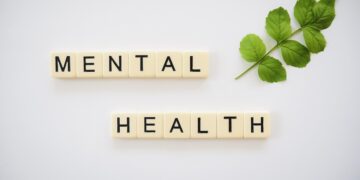Breaking the Stigma: A Guide to Understanding Mental Health
Mental health is a topic that is often surrounded by stigma and misconceptions. It is important to educate ourselves and others about mental health in order to break down these barriers and provide support to those who may be struggling. In this guide, we will explore common questions and concerns related to mental health, as well as provide valuable information to help you understand and support those affected.
What is Mental Health?
Mental health refers to our emotional, psychological, and social well-being. It affects how we think, feel, and act, and can impact every aspect of our lives. Mental health includes our emotional resilience, the ability to cope with stress, and the quality of our relationships. It is just as important as physical health and should be treated with the same level of care and attention.
Common Mental Health Disorders
There are many different types of mental health disorders, each with its own symptoms and treatments. Some common mental health disorders include:
- Anxiety disorders
- Depression
- Bipolar disorder
- Schizophrenia
- Post-traumatic stress disorder (PTSD)
It is important to remember that mental health disorders are medical conditions that can be treated with therapy, medication, or a combination of both. Seeking help from a healthcare professional is the first step towards recovery.
Breaking the Stigma
One of the biggest barriers to seeking help for mental health issues is the stigma associated with them. Stigma is a negative stereotype or belief that is often based on fear or misinformation. It can prevent people from seeking the help they need and can lead to feelings of shame, isolation, and low self-esteem.
Breaking the stigma surrounding mental health starts with education and open conversation. By talking about mental health openly and honestly, we can help reduce the shame and stigma associated with it. It is important to remember that mental health is just as valid as physical health, and seeking help is a sign of strength, not weakness.
Supporting Those with Mental Health Issues
If you know someone who is struggling with their mental health, there are several ways you can support them:
- Listen without judgment
- Offer your time and support
- Encourage them to seek help from a healthcare professional
- Check in on them regularly
It is important to remember that mental health issues are not a choice, and those affected need understanding and support. By being there for someone who is struggling, you can make a positive impact on their recovery journey.
Self-Care and Mental Health
Self-care is an important aspect of maintaining good mental health. It involves taking care of your physical, emotional, and social well-being in order to prevent burnout and improve your overall quality of life. Some self-care practices include:
- Exercise regularly
- Eat a balanced diet
- Get enough sleep
- Practice mindfulness and relaxation techniques
- Connect with others and build a support network
By prioritizing self-care, you can improve your mental health and well-being, and reduce the risk of developing mental health issues in the future.
Seeking Help for Mental Health Issues
If you are struggling with your mental health, it is important to seek help from a healthcare professional. There are several resources available to support you, including therapy, medication, support groups, and hotlines. Remember that you are not alone, and there is help available to you.
It is also important to reach out to friends and family for support. Talking about your feelings and experiences can help you feel less isolated and more understood. Remember that seeking help is a sign of strength, and there is no shame in asking for support when you need it.
Conclusion
Understanding mental health is the first step towards breaking the stigma and providing support to those who may be struggling. By educating ourselves and others, we can help reduce the shame and stigma associated with mental health issues, and create a more supportive and understanding community.
If you or someone you know is struggling with their mental health, remember that help is available. Reach out to a healthcare professional, talk to friends and family, and prioritize self-care. Mental health matters, and it is important to take care of yourself and those around you.
Let’s work together to break the stigma surrounding mental health and create a more supportive and understanding environment for all.






































































